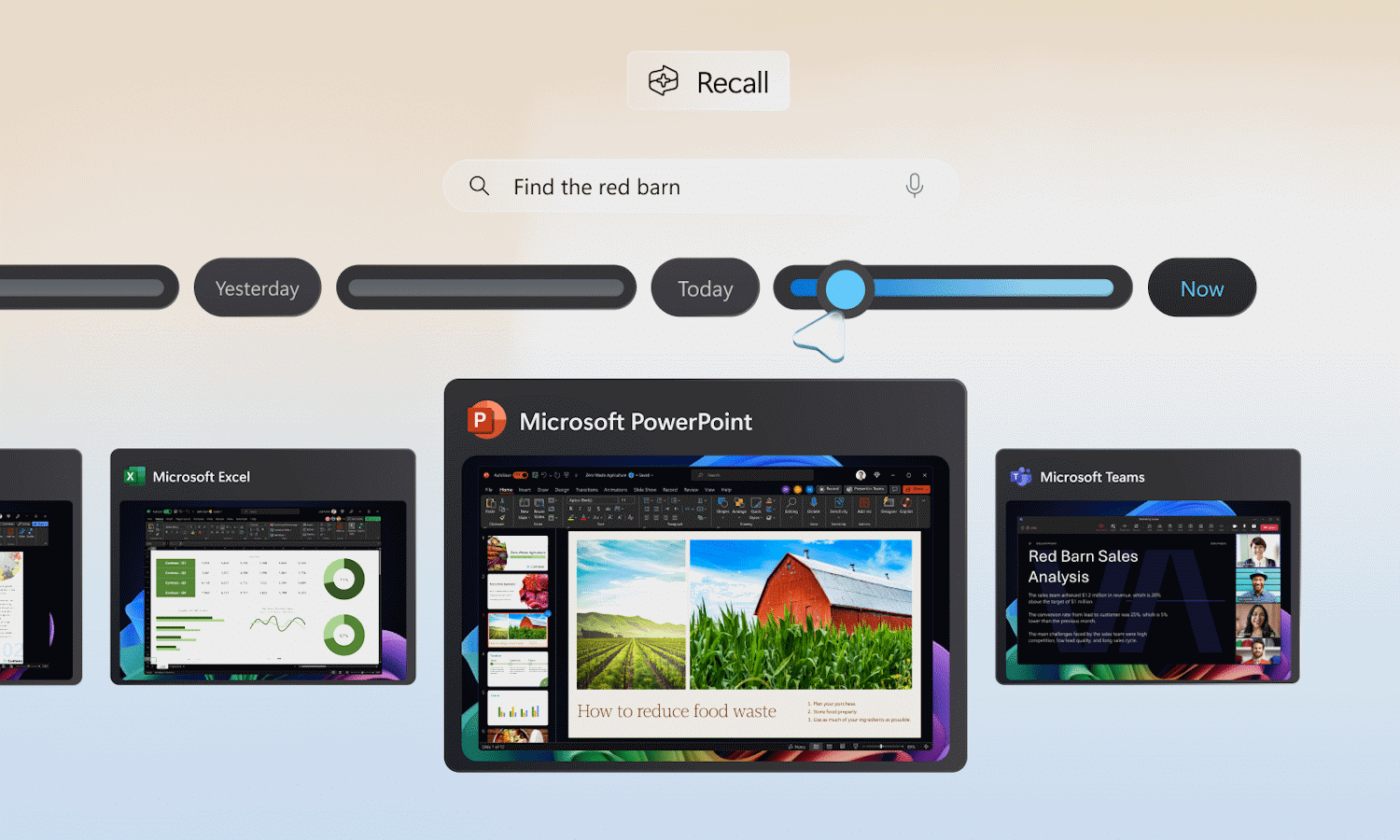
Compliance and cybersecurity in the age of AI [Q&A]
Artificial Intelligence is dramatically transforming the business landscape. It streamlines operations, provides critical insights, and empowers businesses to make data-driven decisions efficiently. Through machine learning, predictive analytics, and automation, AI assists in identifying trends, forecasting sales, and streamlining supply chains, leading to increased productivity and improved business outcomes. It isn't, unfortunately, without problems.
We talked to Matt Hillary, Vice President of Security and CISO at Drata, about the issues surrounding AI when it comes to critical security and compliance.

Unlocking cybersecurity success: The need for board and CISO alignment
The C-Suite’s perception of cybersecurity has evolved dramatically over the past decade. It’s gone from being an afterthought for technology departments to worry about, to a cornerstone for business survival and operational strategy. The heightened awareness of cybersecurity stems from a deeper grasp of the legal, reputational and financial implications of data breaches. This, combined with regulatory pressures such as the original NIS directive, has forced leaders to enhance their organizations’ cybersecurity measures.
The result is that 75 percent of organizations now report that cybersecurity is a high priority for their senior management team. While on the surface this should be celebrated, when digging deeper, conversations between CISOs and the wider C-Suite often just revolve around high-profile or user-centric security risks. More technical and advanced threats such as those related to application security are overlooked. The race to embrace AI and increasingly complicated cloud infrastructures have also made communicating cybersecurity priorities even more difficult for CISOs.

Out of the shadows and into the light: Embracing responsible AI practices amid bias and hallucinations
The path to widespread AI is a bumpy one. While its potential to enhance consumer experiences and streamline business operations through personalization, autonomy, and decentralized reasoning is evident, the technology comes with inherent risks.
AI can produce conclusions that aren’t true, spread misinformation and in some cases, perpetuate existing biases. This -- the darker side of AI’s impact -- can leave business leaders facing financial, legal, and reputational damage.

Artificial Intelligence: What are 4 major cyber threats for 2024?
AI is one of the most powerful innovations of the decade, if not the most powerful. Yet with that power also comes the risk of abuse.
Whenever any new, disruptive technology is introduced to society, if there is a way for it to be abused for the nefarious gain of others, wrongdoers will find it. Thus, the threat of AI is not inherent to the technology itself, but rather an unintended consequence of bad actors using it for purposes that wreak havoc and cause harm. If we do not do something about these cyber threats posed by the misuse of AI, the legitimate, beneficial uses of the technology will be undermined.

Move over Google, LLMs are taking over!
When Google was founded in 1998, it ushered in a new era of access to information. The groundbreaking search engine wasn’t the first to debut (that was World Wide Web Wanderer in 1993), but it was the one that caught on. By 2004, Google was fielding over 200 million searches per day; by 2011, that number had exploded to about three billion daily searches. By that time, the word “Google” had morphed from just the name of the search engine to a verb that meant “to use an internet search engine.” Twenty years later, Google still dominates the market with an almost 84 percent share as of late 2023.
Though Google is still the most popular search engine, new technology has emerged that could threaten its supremacy -- LLMs. The use of this technology is growing at an astonishing rate. In fact, in February 2024, ChatGPT generated over 1.6 billion visits.

Poisoning the data well for Generative AI
The secret to generative AI’s success is data. Vast volumes of data that are used to train the large language models (LLMs) that underpin generative AI’s ability to answer complex questions and find and create new content. Good quality data leads to good outcomes. Bad, deliberately poisoned, or otherwise distorted data leads to bad outcomes.
As ever more organizations implement generative AI tools into their business systems, it’s important to reflect on what attackers can do to the data on which generative AI tools are trained.

The role of APIs within Large Language Models and the shift towards a multi-LLM world
With the arrival of Large Language Models (LLMs) such as ChatGPT, BERT, Llama, and Granite, the operational dynamics within the enterprise sector have significantly changed. LLMs introduce unique efficiencies, paving the way for innovative business solutions. LLMs currently stand at the forefront of technological advancement, offering enterprises the tools to automate complex processes, enhance customer experiences, and obtain actionable insights from large datasets.
The integration of these models into business operations marks a new chapter in digital transformation and therefore requires a closer look at their development and deployment.

Microsoft sprinkles some AI magic onto PowerToys v0.81.0 with new Advanced Paste tool
Hitting a new release cycle, Microsoft has unleashed PowerToys v0.81.0 complete with a brand-new module. With the arrival of the Advanced Paste utility, users gain access to a AI-powered clipboard that makes it possible to paste copied text in any format needed.
It is possible to use a range of keyboard shortcuts to paste text as plain text, markdown, or JSON, but there are plenty more features baked into Advanced Paste. Harnessing AI, the module can use natural language descriptions to explain what you want to do to the copied text. There are also plenty more changes and additions.

How a curious, learning-oriented culture promotes innovation
Technology companies are experiencing tremendous challenges on several fronts. On the one hand, emerging technologies like Generative AI (Gen AI) are opening up new possibilities for revenue and growth. On the other, a tight labor market in general and an even tighter IT labor market means companies can’t just “buy” talent -- they’ve got to “build” it as well.
Encouraging creativity can reap significant rewards for businesses. People can think more deeply and freely about problem-solving and develop creative solutions by sparking curiosity. Research has shown that greater creativity can result in fewer decision-making errors, more innovation, reduced group conflict, more open communication and sharing of information, and better team performance.

Harnessing generative AI to create a new breed of supercharged lawyers and law firms
Traditionally the legal sector has lagged behind other industries when it comes to embracing new technologies. However, generative AI is proving to be the exception to the rule. Its potential to transform the profession, driving lawyers and firms to unlock new levels of productivity and efficiency, is too great to be ignored.
Growing numbers of law firms are putting their money where their mouths are, with global spending on legal AI software tools at already over $1 billion and projected to increase by almost 20 percent (CAGR) every year across the rest of the decade, reaching an estimated $37bn by the end of 2024. There’s a huge societal and industry shift underway; lawyers and law firms must act now, or risk being left behind.

New Recall tool could be Microsoft's best use of AI in Windows 11 yet -- and its most private
Microsoft Build kicks off today but -- as is usually the case -- there have been various pre-event announcements, not least of which is the unveiling of AI-powered Copilot+ PCs. The hardware side of things is both powerful and exciting, with huge implications for not only computing capabilities, but also privacy.
This new breed of computers features neural processing units (NPU) meaning AI-tasks can be performed on-device, without the need to transmit data via the internet. One of Microsoft’s first tools to take advantage of this is Recall (once known as AI Explorer) which is an astonishingly powerful workflow tool that records and maintains a timeline of your computing activities and gives you a way to instantly locate content you have been working on. Microsoft describes it as like having a photographic memory, but it is perhaps better thought of as the ultimate productivity assistant.

Cyber security and artificial intelligence -- business value and risk
In the current era of digitalization, cybersecurity has become a topmost priority for businesses, regardless of their size and nature. With the growing dependence on digital infrastructure and data, safeguarding against cyber threats has become crucial to ensure uninterrupted business operations. However, the evolving nature of cyberattacks poses significant challenges for traditional security measures.
This is where Artificial Intelligence (AI) emerges as a game-changer, offering substantial benefits and inherent risks in cybersecurity.

Balancing the rewards and risks of AI tools
AI’s promise of time and money saved has captivated employees and business leaders alike. But the real question is… is it too good to be true? As enticing as these rewards may be, the risks of this new technology must also be seriously considered.
Balancing the risks and rewards of AI is causing pause for many organizations as they grapple with the right way to adopt AI. Every deployment in every organization is going to look different -- meaning that the balance of risk and reward is also going to look different depending on the scenario. Here, we’ll talk through the promised rewards and the potential pitfalls of adopting generative AI technologies, as well as some guiding questions to help determine if it’s the right move for your business.

How RAG completes the generative AI puzzle
Generative AI entered the global consciousness with a bang at the close of 2022 (cue: ChatGPT), but making it work in the enterprise has amounted to little more than a series of stumbles. Shadow AI use in the enterprise is sky high as employees are making day-to-day task companions out of AI chat tools. But for the knowledge-intensive workflows that are core to an organization’s mission, generative AI has yet to deliver on its lofty promise to transform the way we work.
Don’t bet on this trough of disillusionment to last very long, however. A process called retrieval augmented generation (RAG) is unlocking the kinds of enterprise generative AI use cases that previously were not viable. Companies such as Meta, Google, Amazon, Microsoft, OpenAI and a number of AI startups have been aggressively rolling out enterprise-focused RAG-based solutions.

Walking the AI tightrope in IAM: finding the right balance for your organization
Identity and access management (IAM) is the foundation for control and productivity in today’s digital business environments. Ensuring the right people have the right level of access to the resources they need whenever they need them -- and that the wrong people don’t -- is a core responsibility for administrators and security teams. In a typical hybrid, distributed, multi-cloud environment, with thousands of identities to manage dynamically as the business evolves, the scale of the challenge is considerable. Enter Artificial Intelligence (AI), the seductive solution to all large-scale data-intensive challenges. AI has enormous potential for streamlining the many workloads associated with IAM and lifting the burden on stretched administrative and security teams.
We are undoubtedly experiencing an AI gold rush, but there are tensions in this brave new world. Our recent SME IT Trends report reflects this reality; while 87 percent of UK IT administrator respondents plan to implement AI initiatives in the next two years and 70 percent believe that their organization should be investing in AI, a significant minority (15 percent) say their organization is moving too fast on AI. They are in conflict with the 22 percent who think their business is moving too slowly. That amounts to well over a third of SME IT administrators who are uncomfortable with their company’s AI adoption rate.
